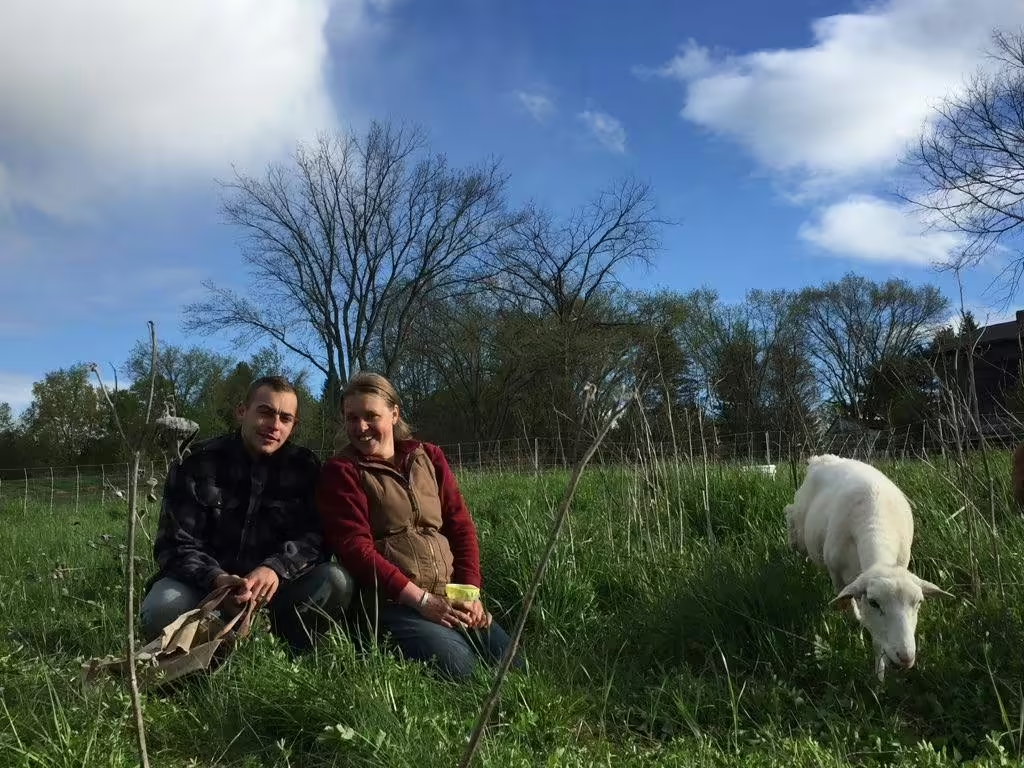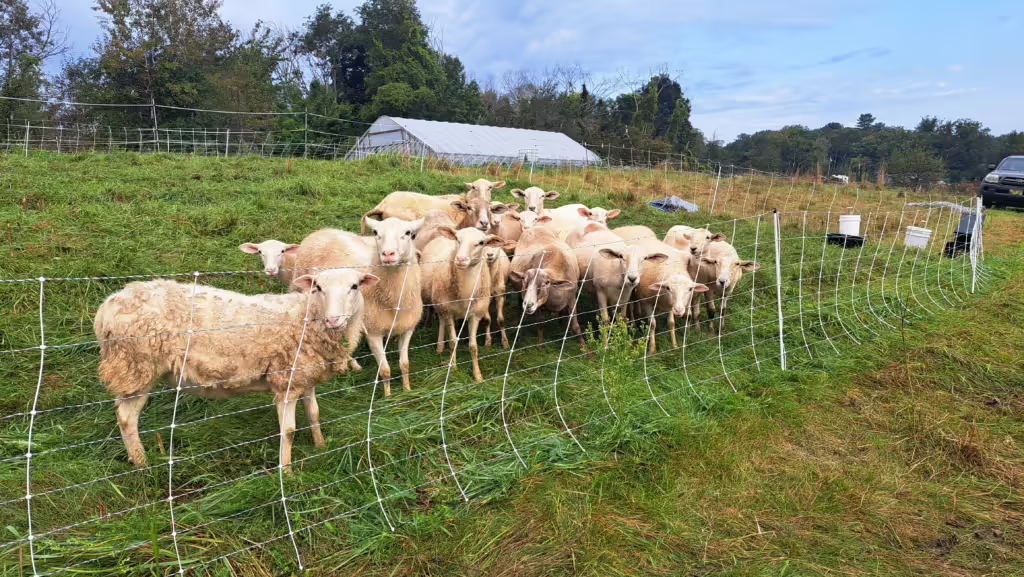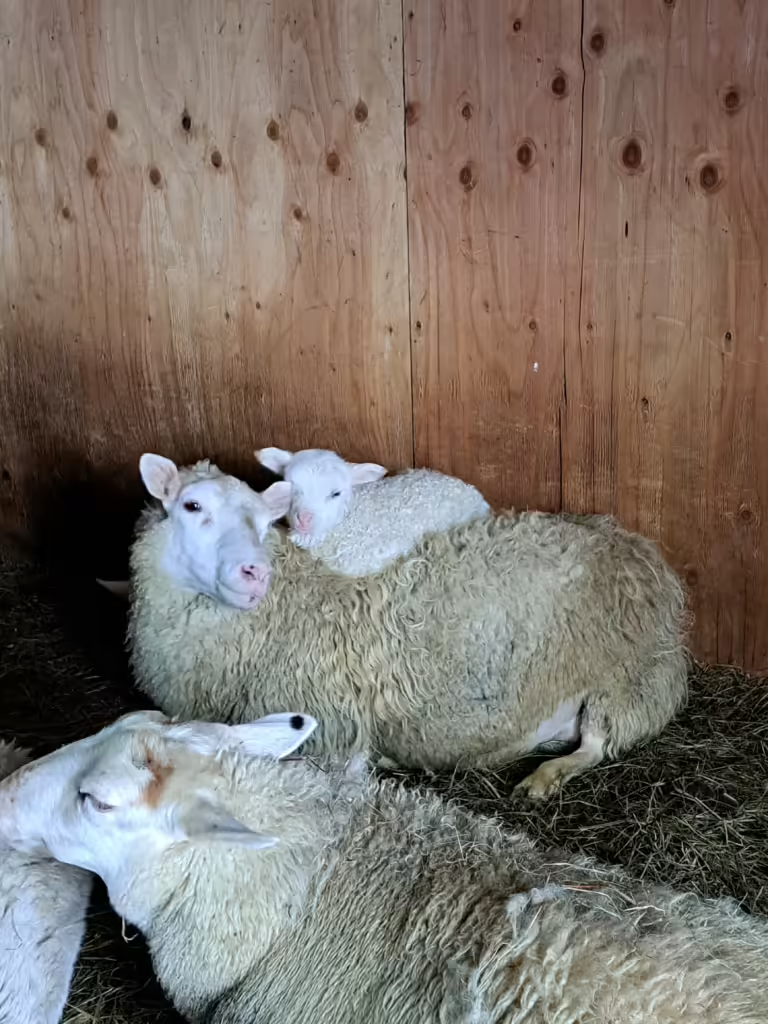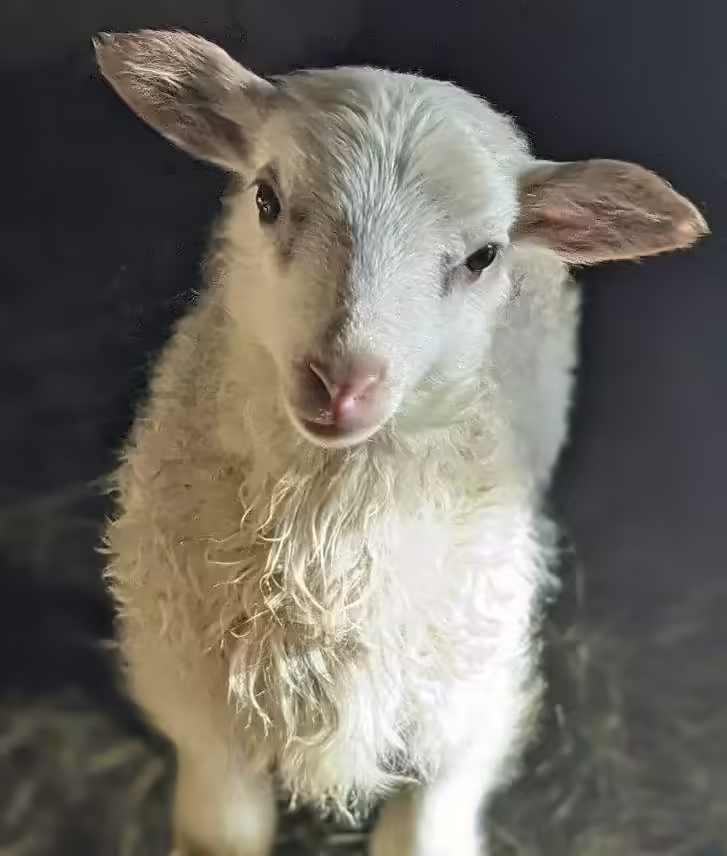Darren and I started Love Birds Farm in 2017 in Vassalboro with the goal of being self sustainable while supporting the community. We are regenerative farmers, growing seasonal vegetables, laying hens, turkey and sheep. We have dabbled in pigs and milking goats over the years, both had their own challenges and may make another appearance on the farm in the future but what we love growing and raising the most are the sheep. We raise them for meat and pelts and we do all of our own meat processing here on the farm. The pelts we do send out for processing, but would love to get into tanning ourselves someday. Our goal is to give the sheep the best life with as little pain and stress as possible. We overwinter about 13 sheep per year, breed 10 and keep 1-2 rams. We sell breedstock and meat lambs for others to raise themselves.

Darren studied sustainable ag at KVCC, where I interned on their farm. He fell in love with a Katahdin lamb named Teacup who was the last one born as a triplet and slightly unwanted by her mom. Darren’s love for her was what got us into sheep. She was born in the spring of 2017 right before we started the farm. We quickly readied the land for the arrival of sheep and chickens and were excited to bring home Teacup and another lamb just 2 months after buying the property.

When we got them home in late June, we realized right away, we wanted more sheep. I found 3 Icelandic sheep in the hopes that I would work their wool. With a mixed herd of Icelandic wool sheep and katahdin hair sheep that shed, we decided to breed that fall to a katahdin ram, giving us a unique cross from the Icelandics. Because katahdins are bigger framed than Icelandics we knew we needed to be present for all births in case the lambs were a little large, which absolutely happened. These 50/50 lambs grew nicely and the hybrid vigor of 2 breeds was something we have continued. I tried working the wool, but that multi-step process was not for me! With this cross, there can be complications with their fiber and they may need shearing as the hair and wool fiber don’t always shed out. We were fine with this compromise for the meat animals we are growing.

The first spring with lambs was absolutely magic! We had healthy lambs, no birthing issues other than assisting. Watching life come into the world was just beautiful. Their cuteness brought so much joy! All summer, we were mentally preparing ourselves to make meat for the first time.
Well, these little lambs caused quite a stir! Being new shepards, there’s a learning process to keeping sheep on pasture, which for us, resulted in naughty lambs breaking out in the night. Waking up, looking out to no sheep in the paddock was distressing but then seeing a face appear out of our garage that they found themselves in, was priceless. That fall, we processed our first lambs for meat. It was a surreal experience and went as smoothly as it could. We knew from that moment on, that this is what we were meant to do.
The breeding ewes got bread again that fall and we waited for spring lambs once again.
Although sheep are skittish, they also have amazing individual personalities. Some would say sheep are stupid but they are extremely smart, and no, you cannot “catch” a sheep, they do best being led. Training with a grain bucket is a great way to earn their trust.

Two pieces of advice we would give anyone who wants to raise sheep are – Be a hands on Shepard, see them everyday if not twice a day. Sheep hide anything ailing them and if you know them, you will know when somethings off. Number 2, Nutrition is everything. In all stages of life, high nutrition helps build immunity to parasites, which can be difficult to control due to environmental factors.
You can find Love Birds Farm on Instagram @lovebirdsfarm and at the Downtown Waterville Winter Farmers Market, Nov.-April with sheep pelts, storage root crops, hearty winter greens and fresh eggs.
